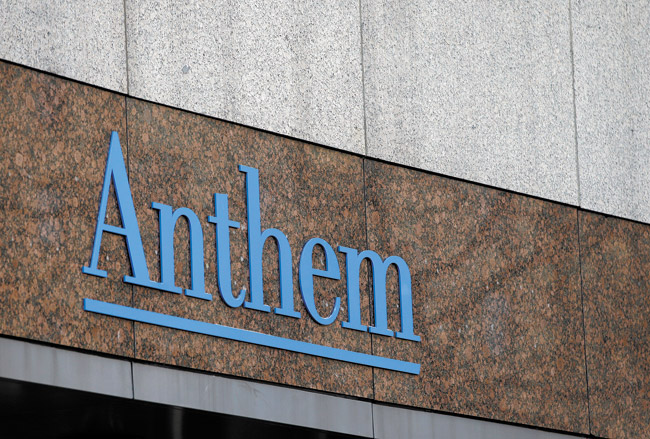The Virtual World’s Scary Reality

Logo on Anthem corporate headquarters in Indianapolis. Anthem Inc. said Feb. 13 that it is offering several levels of free identity theft protection to current and former customers after hackers broke into a database storing information for about 80 million people
AP PHOTO/DARRON CUMMINGS, FILE
Just as I sat down to write this column, I saw the breaking news: 18,000 HMSA members had their information hacked.
HMSA itself wasn’t breached, according to its web-site. The personal information was compromised during a cyber attack on Anthem Inc., a Blue Cross and Blue Shield plan that covers 14 states. HMSA members who have had an Anthem plan in the last 10 years or who’ve had services in states where Anthem operates could be at risk.
From HMSA’s president and CEO Michael Gold: “As a practice, HMSA doesn’t share our members’ Social Security numbers, email or street addresses, telephone numbers, medical or financial information, or other private information. The only information that Anthem has on HMSA members would have been provided by a doctor or hospital in an Anthem state that cared for an HMSA member.
“This would include those members’ names, dates of birth, the cities and states where they live, and part of their HMSA membership number after it processed out-of-state medical or hospital services.”
A small relief. Very small. Like most of you, I’ve read with interest stories about huge companies that have fallen prey to hackers — retail giants, banks, insurance companies, etc.
A quick Google search turns up a Pew Research Center poll that says 18 percent of adults online reported their personal information had been stolen. The data stolen include Social Security numbers, credit card or bank account information.
Twenty-one percent of adults online said they had an email or social networking account compromised or taken over without their permission. In the same report, 50 percent of respondents said they’re worried about the amount of information available about them online.
I share that worry.
Of course I worry. No place in the virtual world is safe. If we haven’t yet been victims, it’s likely because we’ve been lucky. I know this, and yet I continue to use the Internet.
I bank online. I use credit cards. I buy merchandise from online sites. I rent movies online. I am active on social media, including Facebook and Twitter. I have email. I have a YouTube account. I subscribe to online news services, including Honolulu Star-Advertiser and The New York Times.
There is no way I can remove my presence from the Internet.
Would I do it if I could? No. It’s way too late for that. I’m a part of it, and it’s a part of me. Even if I threw out all my devices today, my life’s information would still exist in the virtual world — the Anthem/HMSA breach is a good example of just how embedded we are.
Like many of you, I’ve had my email account hacked and flooded my friends’ inboxes with spam. The solution to that kind of sleazy attack is fairly simple: Change a password or, in more extreme cases, shut down the account. This is baby stuff compared with what else is happening in the cyber world.
I do everything I can to keep my information safe. I keep up with technology news and, as much as I am able, I practice safe Internet.
But I know that may not be enough. I, like all of you, have to rely on the diligence and safety practices of every entity I deal with. The realization that so much of it is out of my control is perhaps the most unsettling thing of all.
The virtual world may be easy, ubiquitous and fun, but it sure isn’t safe.
jmoonjones@yahoo.com
Twitter: @JadeMoon1





